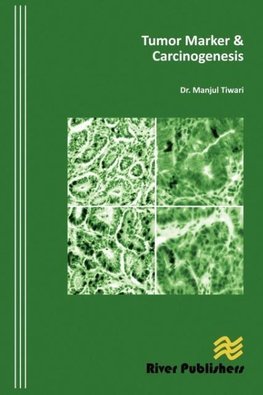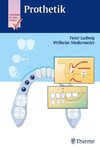
-
 Anglický jazyk
Anglický jazyk
Tumor Marker & Carcinogenesis
Autor: Manjul Tiwari
Cancer may be regarded as a group of diseases characterized by an (i) abnormal growth of cells (ii) ability to invade adjacent tissue and even distant organs and(iii) the eventual death of the affected patient if the tumor has progressed beyond that... Viac o knihe
Na objednávku, dodanie 2-4 týždne
126.45 €
bežná cena: 140.50 €
O knihe
Cancer may be regarded as a group of diseases characterized by an (i) abnormal growth of cells (ii) ability to invade adjacent tissue and even distant organs and(iii) the eventual death of the affected patient if the tumor has progressed beyond that stage when it can be successfully removed . Cancer can occur at any site or tissue of the body and may involve any type of cells.
In 1995 the south East Asia Region of WHO found that there is great majority of cancers of the oral cavity in India . These and other international variations in the pattern of oral cancer are attributed to multiple factors such as environmental factors , food habits , life style , genetic factor or even inadequacy in detection and reporting of cases. Oral cancers are also predominantly environment related and have socio -cultural relationship31.
Majority of malignancies arising in oral mucosa are epithelial in origin approximately 90% of being squamous cell carcinomas .Management of oral carcinoma includes early diagnosis , accurate assessment of prognosis and proper therapeutic intervention. Tumor markers play an important role in all the aspect of management of oral cancer.
Tumor markers are a group of proteins(oncoprotein, immunoglobulin, albumin, globulin),hormones(adrenal corticotropic hormone (ACTH), calcitonin, catecholamines), enzymes(acid phosphatase, alkaline phosphatase, amylase, creatine kinase) ,receptors(estrogen receptor, progesterone receptor, interleukin-2 receptor, and epidermal growth factor receptor), and other cellular products that are over expressed (produced in higher than normal amounts) by malignant cells48. Tumor markers are usually normal cellular constituents that are present at normal or very low levels in the blood of healthy persons and the Carcinogenesis (meaning literally, the creation of cancer) is the process by which normal cells are transformed in to cancer cells.
Carcinogenesis is a multistep process resulting from the sequential perturbation of both positive and regulatory networks that normally allow the somatic cell to live a cooperative existence within the society of normal cells that comprise an organism. Normal cells even programmed to give their own life for the good of the organism. Any genetic or epigenetic changes that allow a cell to escape these societal constraints represent a step toward cancer. Survival of the fittest cells allows for the clonal expansion of progeny cells with ever increasing numbers of genetic or epigenetic changes that favor even greater antisocial and selfish behavior of the cancer cell within the organism. Carcinogenesis is caused by mutation of the genetic material of normal cells, which upsets the normal balance between proliferation and cell death. This results in uncontrolled cell division and tumor formation. The uncontrolled and often rapid proliferation of cells can lead to benign tumors. Some types of these may turn in to malignant tumors.
- Vydavateľstvo: River Publishers
- Rok vydania: 2012
- Formát: Hardback
- Rozmer: 240 x 161 mm
- Jazyk: Anglický jazyk
- ISBN: 9788792329370




 Nemecký jazyk
Nemecký jazyk 




 Španielsky jazyk
Španielsky jazyk 


